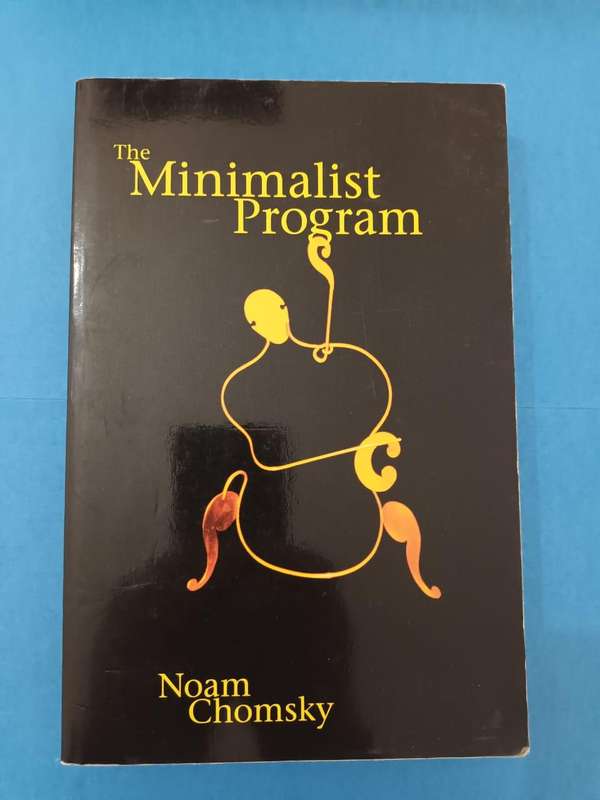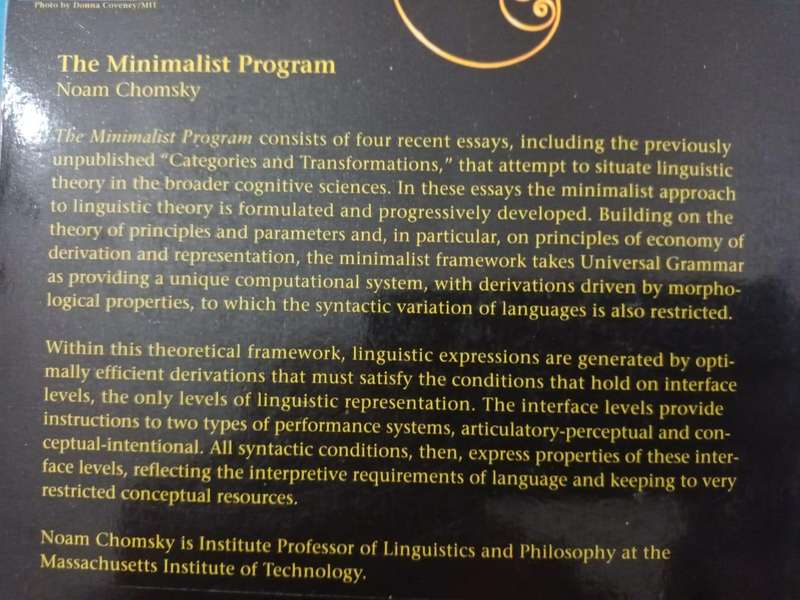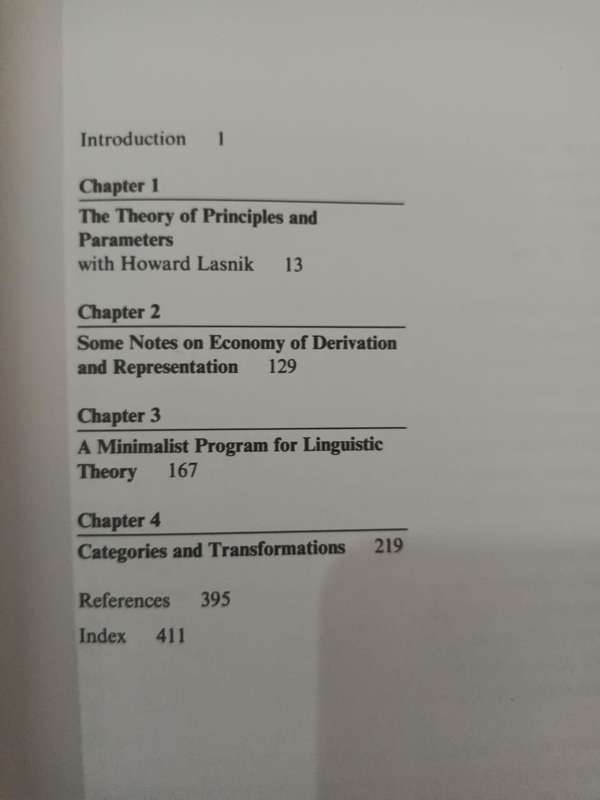





Noam Chomsky, The Minimalist Program
Check my rate
| Main centres: | 1-3 business days |
| Regional areas: | 3-4 business days |
| Remote areas: | 3-5 business days |






| Main centres: | 1-3 business days |
| Regional areas: | 3-4 business days |
| Remote areas: | 3-5 business days |
Noam Chomsky, The Minimalist Program. Cambridge, Mass.: The MIT Press, 1995.
Paperback, card wraps, 22.5 x 15 cm, 420 pages, a few diagrams.
Slight shelf wear to the covers, owner's name on the half-title-page.
The Minimalist Program consists of four recent essays, including the previously unpublished Categories and Transformations, that attempt to situate linguistic theory in the broader cognitive sciences. In these essays the minimalist approach to linguistic theory is formulated and progressively developed. Building on the theory of principles and parameters and, in particular, on principles of economy of derivation and representation, the minimalist framework takes Universal Grammar as providing a unique computational system, with derivations driven by morphological properties, to which the syntactic variation of languages is also restricted.
Within this theoretical framework, linguistic expressions are generated by optimally efficient derivations that must satisfy the conditions that hold on interface levels, the only levels of linguistic representation. The interface levels provide instructions to two types of performance systems, articulatory-perceptual and conceptual-intentional. All syntactic conditions, then, expressed properties of these interface levels, reflecting the interpretive requirements of language and keeping to very restricted conceptual resources.
Noam Chomsky [was] Institute Professor of Linguistics and Philosophy at Massachusetts Institute of technology.
Linguistics. The science of language.